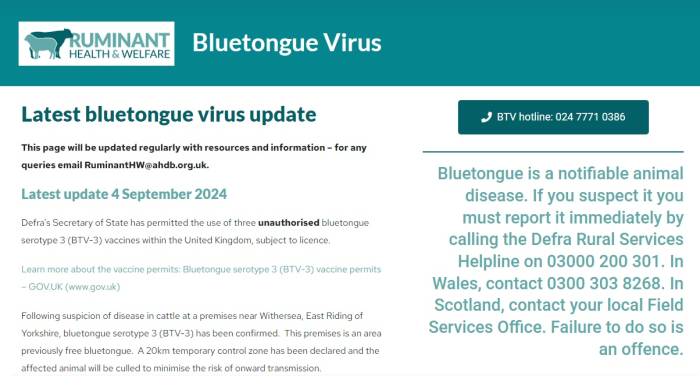5th September 2024
With the ongoing bluetongue situation in the UK, SCOPS would like to remind farmers, vets and advisers that insecticides will not prevent midges biting livestock so should not be prescribed as a way to prevent bluetongue or reduce transmission.
Speaking on behalf of SCOPS, independent sheep consultant Lesley Stubbings says: “Insecticides do not kill midges fast enough to prevent the first bite, and that first bite is all it takes to transmit bluetongue. There is no evidence insecticides can prevent infection or prevent onward transmission. SCOPS appreciates farmers want to feel they are doing something to protect their stock at this difficult time but, unfortunately, insecticides are not the solution. Insecticides used in this way will cost money and may have a detrimental effect on the environment.
“The SCOPS principles state that slowing down the development of resistance to any product that controls internal and/or external parasites relies on the industry only treating animals when there is a clear need. This is why SCOPS recommends insecticides are not prescribed for the control of bluetongue.”
Similar to insecticides, there is also no evidence that insect repellents prevent or reduce bluetongue transmission either.
The following information is lifted directly from the bluetongue Q&A on the Ruminant Health & Welfare Group’s website.
Further information
